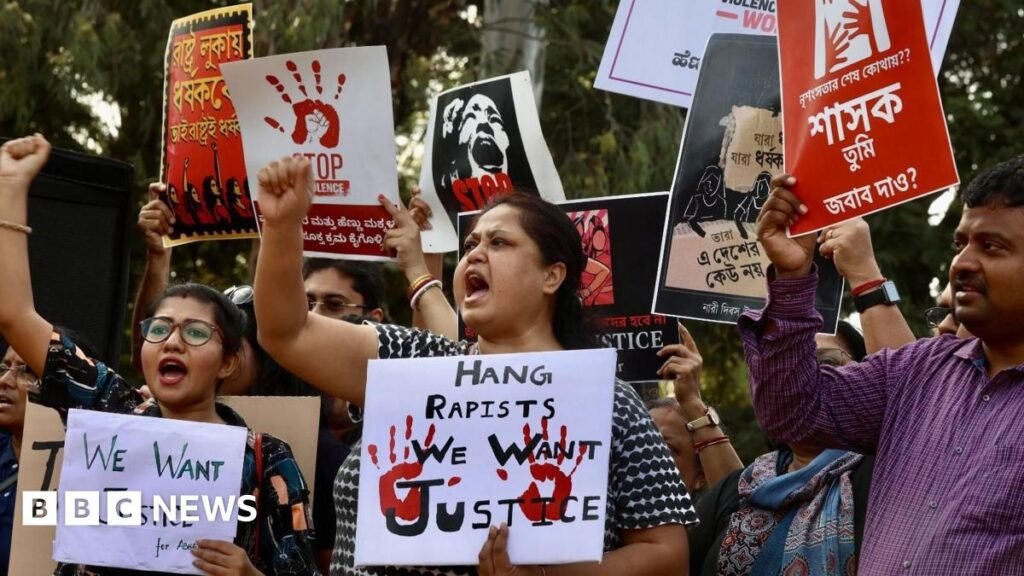According to the charge sheet drawn up by the Central Bureau of Investigation (CBI), seen by the BBC, Roy went to the hospital drunk and found the doctor sleeping alone.
He was detained a day after the crime.
The case was initially investigated by the Kolkata Police, but the court later handed over the probe to the CBI after government officials were accused of ill-handling him.
In the weeks following the incident, doctors and medical students across India held protests and rallies demanding justice and better safety for doctors.
One of these protests “Take back the night” The march saw tens of thousands of women marching through the night-time streets of Kolkata and other cities on August 14, the eve of India’s Independence Day.
In December, the victim’s parents approached the Calcutta High Court seeking a fresh probe, expressing no confidence in the CBI probe.
They argued that Roy alone could not have committed the crime and said they would only be satisfied if all those involved were brought to justice. The high court said it would hear the application only if the Supreme Court, which is overseeing the case, orders it to do so.
The incident sparked concern over a rise in violence against health workers in India – many of whom face physical abuse from angry patients or their relatives.
A 2017 survey by the Indian Medical Association found that more than 75% of doctors in India have faced some form of violence. The survey also revealed that almost 63% of doctors fear possible violence while treating patients.
Meanwhile, sexual violence against women remains a widespread problem in India. In 2022, more than 31,000 rapes were reported in India, externalaccording to the National Crime Records Bureau (NCRB).
Many rape cases in India go unreported, largely due to the social stigma surrounding sexual violence and a lack of trust in the police and judicial system. Activists say this often results in shaming the victim rather than the abuser, particularly in rural areas.
In 2012, the rape and murder of a female medical student by a group of men in the Indian capital, Delhi, drew global attention and sparked similar, wider protests.
Public anger prompted authorities to amend rape laws in 2013. The changes broadened the definition of the crime, established stricter penalties for sexual assault and lowered the age at which a person can be prosecuted from 18 to 16.
Follow BBC News India Instagram, external, youtube,, external Twitter, external and Facebook, external.

